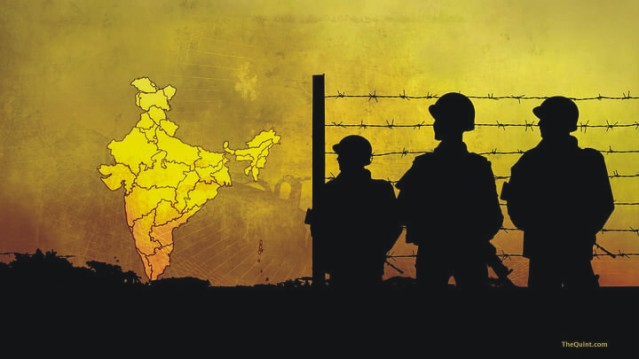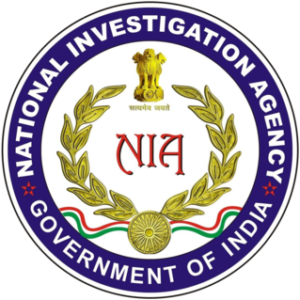

A RECENT UN Report on global operations of Al Qaeda and Islamic State of Iraq and Syria (ISIS) by the Analytical Support and Sanctions Monitoring Team of the UN Security Council says that Al Qaeda is regrouping in Taliban-led Afghanistan.

But what is more worrying is that around 200 fighters of the Al Qaeda in Indian Subcontinent (AQIS), the South Asia-focused branch of the parent terrorist organisation, are still active, and who might be planning operations in Jammu and Kashmir, Bangladesh and Myanmar, the report says.
The report says that the AQIS is grooming an affiliate for Kashmir operations. Plus, it also raises concern on Taliban-ruled Afghanistan becoming the epicentre of global terrorism, with around 20 militants groups operating from its soil.
While developing their network at home in India, The Islamic State supporters also provides recruits to join jihadi organisations, outside India.
According to reports, as many as 200 have left India, a significant number of these are from Kerala. Although this number might look surprisingly low considering India’s large Muslim population, the participation had an impact on the domestic network, forming an important conduit for advice and communication with the organisation in Syria and in Afghanistan.
As per the Washington-based United States Institute of Peace (USIP) report,one of those who benefited from this link was Umar Nisar Bhat.

Nisar was a central figure in the pro-Islamic State network in India from the inception of ISJK, playing a major role in the network’s propaganda dissemination until his arrest in July 2021.
But the threat here is multi-organisational, not just from Taliban or the Tehreek-e Taliban Pakistan (TTP), but also from the Islamic State Khorasan Province (ISKP), which has emerged as one of the dominant terrorist organisation in Afghanistan.
The Islamic State’s presence in South Asia is not limited to Afghanistan and Pakistan but extends to include “periphery” territory, including India, Bangladesh, Myanmar, the Maldives, and Sri Lanka.
Reportedly, Al Qaeda uses Afghanistan as an ideological and logistical hub to mobilise and recruit new fighters while covertly rebuilding its external operations capability.
 According to the UN report, the Al Qaeda core in Afghanistan remains stable at 30 to 60 members, while all Al Qaeda fighters in the country are estimated to be 400.
According to the UN report, the Al Qaeda core in Afghanistan remains stable at 30 to 60 members, while all Al Qaeda fighters in the country are estimated to be 400.
The report also mentions Osama Mehmood being the AQIS chief.
One of the most alarming aspect of the UN report is that Al Qaeda is maintaining “a close and symbiotic” relationship with the Taliban government.
Under the patronage of high-ranking Taliban officials, Al Qaeda members “infiltrate law enforcement agencies and public administration bodies”, ensuring the security of the group’s cells across Afghanistan. Though, Al Qaeda’s capability to conduct large-scale terror attacks “remains reduced while its intent remains firm”.
The report says that Al Qaeda is also working to strengthen cooperation with non-Afghan terror groups such as the Islamic Movement of Uzbekistan (IMU), Turkistan Islamic Party (TIP) and Jamaat Ansarullah.
Meanwhile, a war of words between TTP and ISKP has also been reported, with each blaming and criticising the other having ties with regional intelligence agencies.
 The UN report also assessed the Islamic State of Iraq and Levant-Khorasan Province (ISIL-KP) as the “most serious terrorist threat in Afghanistan and the wider region.”
The UN report also assessed the Islamic State of Iraq and Levant-Khorasan Province (ISIL-KP) as the “most serious terrorist threat in Afghanistan and the wider region.”
The ISIL-KP has actually in recent years developed close links with AQIS and many recruits from India and Pakistan have worked for this terror network.
For the Indian government, the most alarming aspect is the aspirations of the AQIS targeting India and Kashmir, which has been on its radar since 2010 onwards.
However, as per another UN report of 2017, Al Qaeda has not been able to make significant inroads into the Kashmir theatre. The new threat, as evident from the UN report, may be a renewed effort by the terror group to reinvigorate its network.
However, as per the USIP report the Islamic State has largely failed to mobilise large numbers of supporters in India to migrate to the Levant or to engage in extremist activities at home.
The group’s presence in India started with the establishment of several pro-Islamic State groups operating in the Indian-administered region of Jammu and Kashmir.
In July 2017, these supporters took the name “Islamic State in Jammu and Kashmir” (ISJK), yet it was not until May 2019 that the Islamic State officially established a separate province in India, also covering Kashmir, as per the USIP report.
 The USIP report further says that the nexus of AQIS-ISIL-KP has already made its foray into India. This terror network poached some youth from Kerala who went missing and then were reported to have joined ISIL.
The USIP report further says that the nexus of AQIS-ISIL-KP has already made its foray into India. This terror network poached some youth from Kerala who went missing and then were reported to have joined ISIL.
Similarly, many youth who were arrested between 2013 to 2016 from various locations like UP, Gujarat, Delhi and Odisha were supposed to be members of the AQIS.
The UN report has also expressed concerns that the outlawed TTP could become a regional threat if it continues to have a safe operating base in Afghanistan.
Part of the reason why India, despite its large Muslim population, has seen fewer attacks than other countries in the region are due to India’s counter-terrorism capabilities, which have considerably improved since the devastating 2008 Mumbai attack.
 A report published by Hindustan Times in September 2021 reported that according to India’s counter-terrorism agency, the National Investigation Agency (NIA), 168 individuals have been accused of association with the Islamic State across 37 cases.
A report published by Hindustan Times in September 2021 reported that according to India’s counter-terrorism agency, the National Investigation Agency (NIA), 168 individuals have been accused of association with the Islamic State across 37 cases.
Though the figure might look very low compared to the Muslim population of India, yet it is a cause of concern for the community and the government too, as it raises the spectre of radicalisation in the country.
The USIP report suggests that to counter radicalisation, states can promote political pluralism and respect for minorities.
Government policies that discriminate against, marginalise, and even violently repress minorities are fostering severe domestic cleavages in South Asian countries, alienating groups to the extent that some of their members look to the Islamic State to help them fight back.
To mitigate the risks associated with such policies, India should promote political and religious pluralism respecting all minorities. ![]()
___________
Also Read:
Drug Menace Cannot Be Addressed Without Addressing the Root Cause of Supply Chain
Deliberate Destruction of Indian Railways
Mughal Gardens – Name Changed, But Why?
Will SC Order Be Implemented When There Is Political Patronage For Hate Speech?
Time to build on synergy of ground energy & politics
Punjab – How a deadly cocktail of Agri-Water-Energy nexus going to destroy it?

Disclaimer : PunjabTodayTV.com and other platforms of the Punjab Today group strive to include views and opinions from across the entire spectrum, but by no means do we agree with everything we publish. Our efforts and editorial choices consistently underscore our authors’ right to the freedom of speech. However, it should be clear to all readers that individual authors are responsible for the information, ideas or opinions in their articles, and very often, these do not reflect the views of PunjabTodayTV.com or other platforms of the group. Punjab Today does not assume any responsibility or liability for the views of authors whose work appears here.
Punjab Today believes in serious, engaging, narrative journalism at a time when mainstream media houses seem to have given up on long-form writing and news television has blurred or altogether erased the lines between news and slapstick entertainment. We at Punjab Today believe that readers such as yourself appreciate cerebral journalism, and would like you to hold us against the best international industry standards. Brickbats are welcome even more than bouquets, though an occasional pat on the back is always encouraging. Good journalism can be a lifeline in these uncertain times worldwide. You can support us in myriad ways. To begin with, by spreading word about us and forwarding this reportage. Stay engaged.
— Team PT


Copyright © Punjab Today TV : All right Reserve 2016 - 2024 |